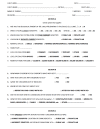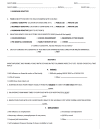Unprepared and Misinformed Parents of Children with Sickle Cell Disease: Time to Rethink Awareness Campaigns
- PMID: 30868020
- PMCID: PMC6402737
- DOI: 10.7759/cureus.3806
Unprepared and Misinformed Parents of Children with Sickle Cell Disease: Time to Rethink Awareness Campaigns
Abstract
Worldwide, sickle cell disease (SCD) poses a significant public health concern. It causes recurrent morbidity, and premature death is a distinct possibility, especially in Nigeria, which bears half the world's burden of SCD patients. Nigeria has yet to establish a newborn screening program; consequently, most affected children are diagnosed between one and three years of age when a health problem arises. Parents are unprepared to identify SCD and seek comprehensive management early enough for the best outcome. Awareness of carrier status and knowledge of SCD would ensure informed reproductive choices. Questionnaires were employed to conduct a prospective, cross-sectional study of the occurrence of missed carrier status of one biological parent of children enrolled at the pediatric sickle cell disease clinic of a teaching hospital. The institution's ethics committee approved the study. Of 133 respondents, 53% of the parents were unaware of being sickle cell carriers and did not expect to have children with SCD. Among families in which one or both parents proactively sought to know their genotype, 35% of all parents received incorrect genotyping results regarding the SCD risk of their offspring. The majority of incorrectly assigned hemoglobin AA results occurred in private laboratories. More than 60% of the respondents reported gaining awareness regarding SCD through antenatal care (51%) and schools (17%), as opposed to public awareness campaigns (8%). Many parents in our study population were unprepared for their children's SCD diagnosis. Awareness campaigns need to be revisited as a major potential modality to increase outreach about SCD. Standardization and improved quality control of laboratory testing involving screening of the sickle cell trait could reduce the frequency of wrong genotype assignment.
Keywords: anemia; caregiver burden; public awareness; public health analysis; sickle cell disease.
Conflict of interest statement
The authors have declared that no competing interests exist.
Figures
References
-
- Sickle cell trait. [Jan;2014 ];2014 17 Jan]; Available from. http://www.hematology.org/Patients/Anemia/Sickle-Cell-Trait.aspx Sickle Cell Trait. 2014 [cited
-
- Sickle-cell disease. Rees DC, Williams TN, Gladwin MT. Lancet. 2010;376:2018–2031. - PubMed
-
- National Heart, L.a.B.I L.a.B.I. Nov]; Available from: 28 Sep 2012 [cited 2013 08; [Nov;2013 ]. 2012. What is sickle cell anemia?
-
- The national burden of sickle cell disorder and the way forward. [Jan;2011 ];Akinyanju Akinyanju, O O. http://www.sicklecellfoundation.com/wp-content/uploads/2015/05/Nat-Burde... 2010
LinkOut - more resources
Full Text Sources



